
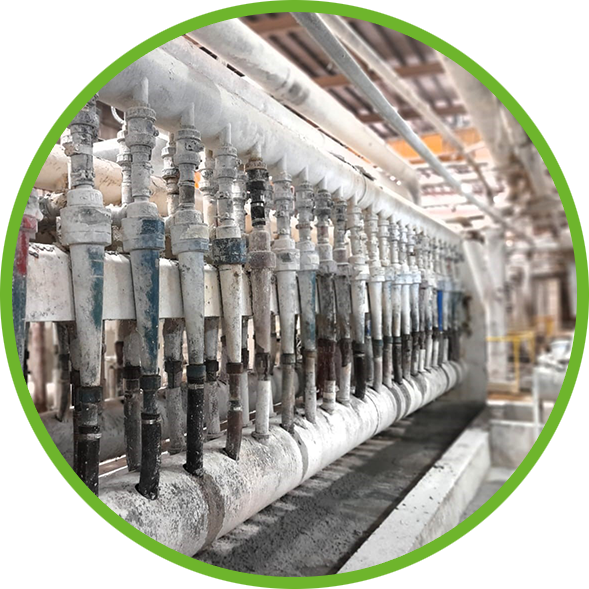
This suspension goes through a series of cleaning and screening processes to remove unwanted materials. The low density cleaners are an example of one such piece of equipment used in this process.
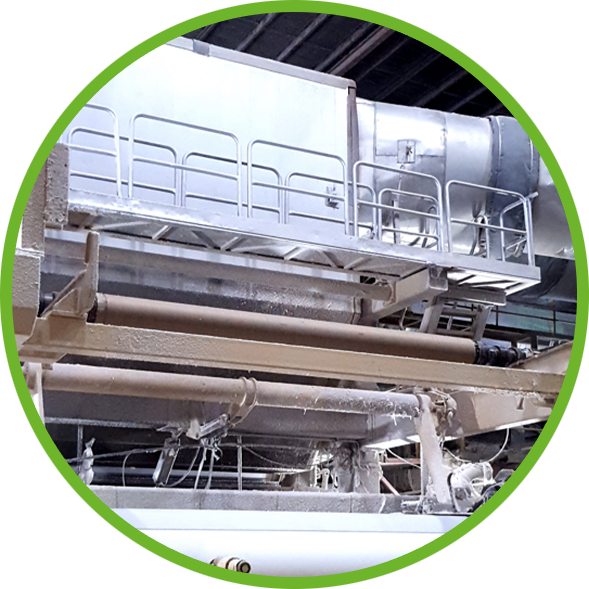
The fibre slurry is sprayed onto a forming fabric where the paper web is formed, dried to the desired moisture content and wound into jumbo rolls on a paper machine.
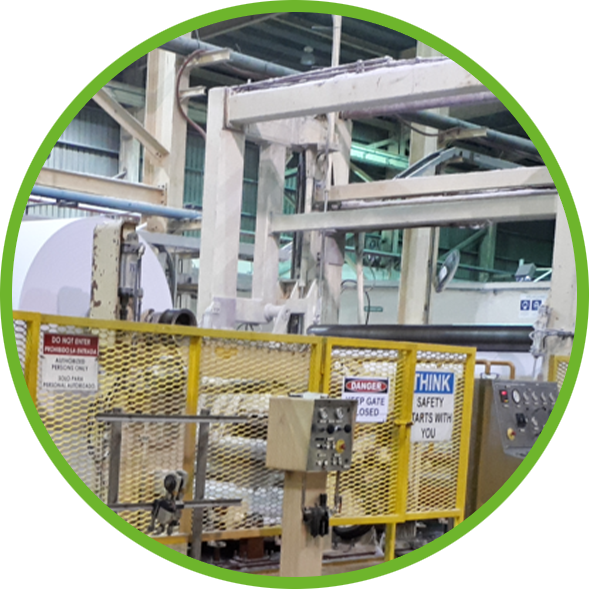
The roll is transferred via an overhead crane to the rewinding section where it is cut and rewound into semi-finished rolls according to the customer’s specification.
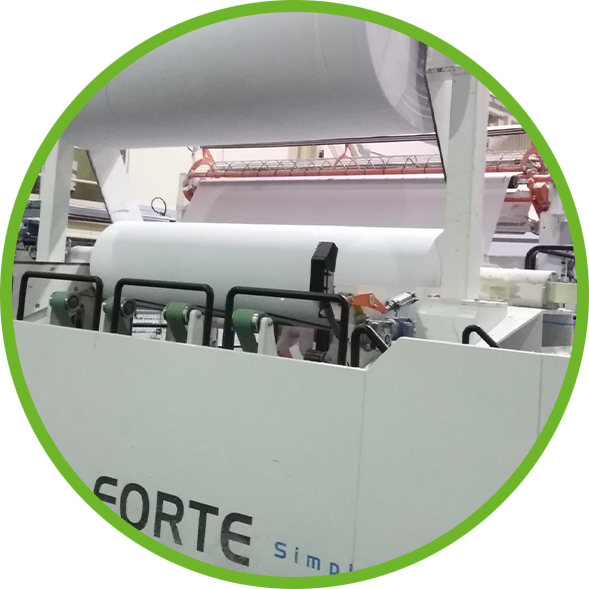
For the bath tissue and kitchen towel machines, the paper from the semi-finished roll is unwound, then embossed, laminated, perforated and rewound into logs.
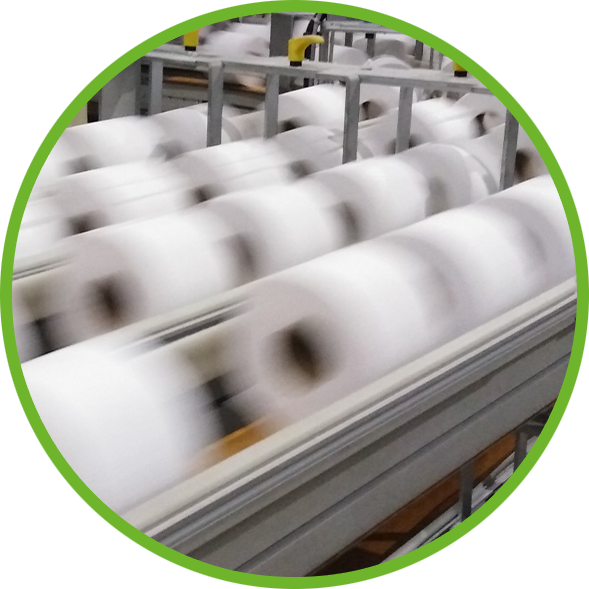
The logs are then stored in the accumulator and transferred to the log saw where it is cut into smaller bathroom tissue or kitchen towel rolls.

The rolls are automatically packaged into packs and cases according to the different style presentations.
The products are then packaged into packs and cases according to the different presentations.
Quality management is part of the entire production process. Upon reception of the raw materials and packaging, samples are taken and inspected to ensure compliance with technical specifications.
In addition, product properties are monitored and verified throughout all stages of the production process, from the creation of the semi-finished roll to the finished product.
Standardization, Process Control, Quality Management and Continuous Improvement are all part of the organizational culture. Our Regional group strengthens this culture through collaboration of ideas through a regional management system, thus positioning Trinidad Tissues Limited as leaders in the national and regional Tissue Paper market.